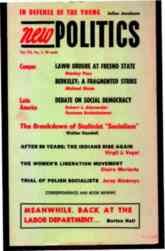
New Politics editorial board member Michael Hirsch (1945-2021) was a young radical when he came into contact with the journal’s founding editors, Phyllis and Julius Jacobson. The first of his many articles for it appeared in Spring 1970.
MICHAEL HIRSCH is a New York-based labor and political writer and a New Politics editorial board member.

New Politics editorial board member Michael Hirsch (1945-2021) was a young radical when he came into contact with the journal’s founding editors, Phyllis and Julius Jacobson. The first of his many articles for it appeared in Spring 1970.

Student radical, trade union militant, and economist. Michael Hirsch pays tribute to a comrade who has gone too soon.
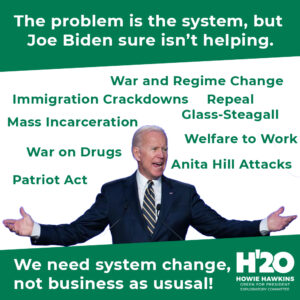
My late comrade and esteemed New Politics editorial board member Joanne Landy steadfastly insisted she’d never vote for a Democratic Party candidate, preferring a protest vote for the Green Party. “But I’ll never join that party,” she insisted.
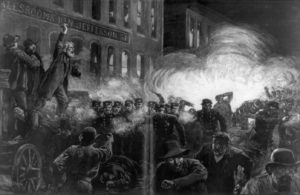
This piece is the text of a talk given to the DSA Lower Manhattan Branch’s Political Education Working Group on December 4, 2019, serving as introduction to “Bernie and Labor” part of its series “Why Bernie?”
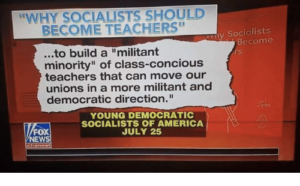
With a new generation of militant radical organizers looking to industrialize into union jobs and kick-start a new militant minority in the U.S. labor movement, their effort is receiving both wide support and wary when not damning criticism. Among the . . .
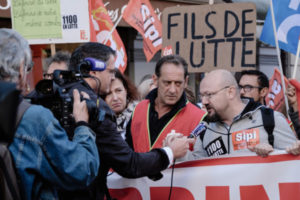
Although New Politics has already run Steve Early’s review of this movie, we think this film fills a gap in radical cinematography so well that we’re also running a second, somewhat different review.
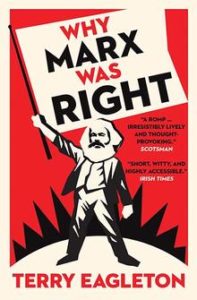
This blog post is based on a presentation on chapters 2 and 8 of Terry Eagleton’s Why Marx Was Right to the Lower Manhattan DSA Branch Political Education meeting, May 14, 2019.
Milton Berle, the 1950s television comic superstar, had a . . .

For those who expected the midterm elections to be a slow grinding of the far right and the nation’s wax museum-Bonapartist president, the mills of the gods on election night operated as if on seasonal layoff.
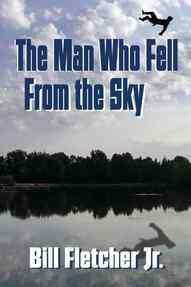
Bill Fletcher, Jr. The Man Who Fell From the Sky. Hard Ball Press, $15, trade paperback, 350 pp.
“Race” as a biological category differentiating humans has been a spurious and discredited marker for more than a century. From Franz Boas’ early pioneering studies of the Inuit to Barbara Fields’ contemporary savaging of race-based ideology, we should all understand that humans are one race, end of discussion!
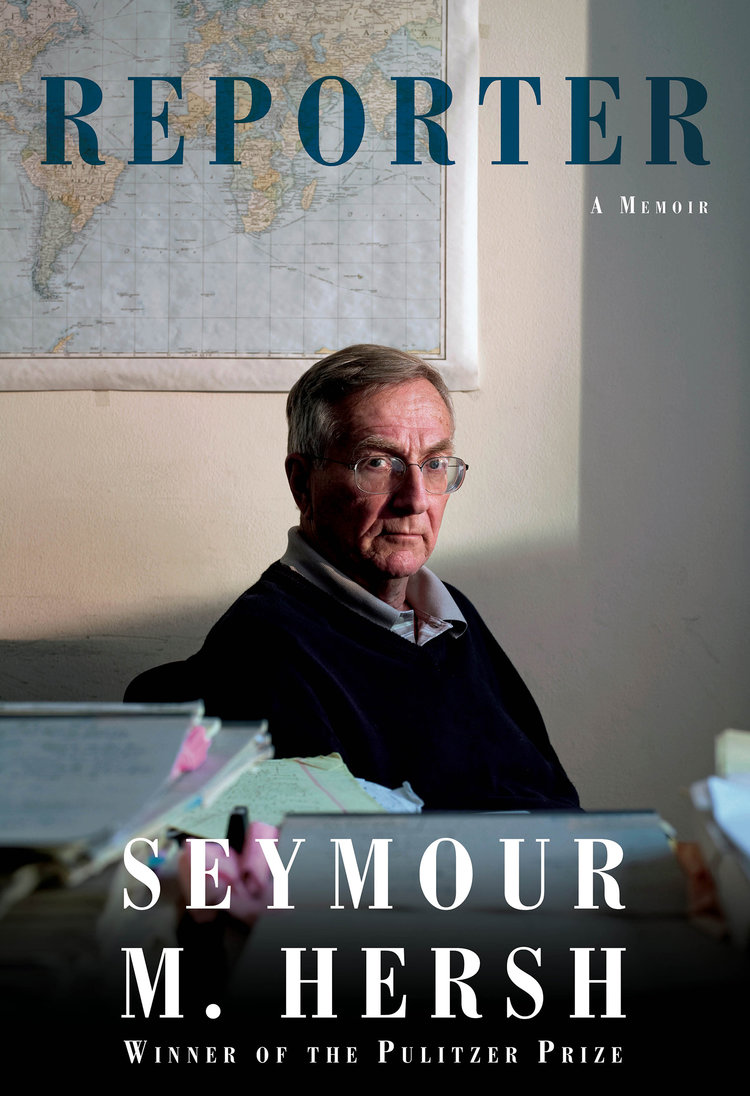 Seymour Hersh. Reporter: A Memoir. Knopf, 2018. 368 pp.
Seymour Hersh. Reporter: A Memoir. Knopf, 2018. 368 pp.
Writing in 1940, George Orwell opined in a review of a Bertrand Russell book that “we have now sunk to a depth at which the restatement of the obvious is the first duty of intelligent men.” Much the same can be said about the more than fifty-year career of journalist Seymour Hersh, whose pioneering exposés of the lies of the Great Powers report and affirm facts that follow Orwell’s dictum.

Dan's sober and sobering comment on why he opposed an endorsement by DSA of the Cynthia Nixon campaign to dethrone Andrew Cuomo, New York's corporate deny-the-corporate-class-nothing's two-term governor [see "Why I voted Against Endorsing Cynthia Nixon"] is sharply and smartly posed. It deserves a similar if brief reply, one crafted in what I hope encapsulates the same spirit.

If one thing was clear coming out of the New York City Democratic Socialists of America’s May 5 convention, it was that most delegates uniformly consider themselves socialists and aspire to build an anti-corporate resistance movement nationwide. So far, so good.

This presentation was given at the June 30, 2018, DSA Lower Manhattan Branch meeting/picnic.
When I was in college and the Vietnam War was raging, I was president of the campus’s SDS chapter. I remember lunching with the head of our local Young Democrats. He was a decent enough liberal who also opposed the war but told me he could never be a radical because he didn’t believe in class struggle. I told him it was less a matter of what he and I believed than in what leading sections of the ruling class thought and did.
Gayle McLaughlin. Winning Richmond: How a Progressive Alliance Won City Hall. Hard Ball Press, 2017. 306 pp.
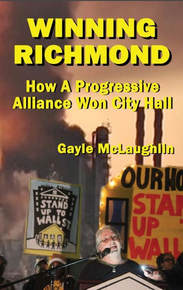
On August 6, 2012, an elephantine plume of black smoke rose over Richmond, California, sending some 15,000 people suffering from respiratory distress to area hospitals. Most of the city’s 110,000 inhabitants received “shelter-in-place” warnings to stay indoors and tape their windows shut to avoid breathing the deadly fumes. The smoke came from a massive fire at Chevron’s giant fuel-processing facility in the city, caused by slack maintenance and slacker management oversight. It wasn’t the first or the last mishap at the refinery. Since 1989, 14 such eruptions have been reported. In Richmond at least, the enemy has a name and a besmirched face.
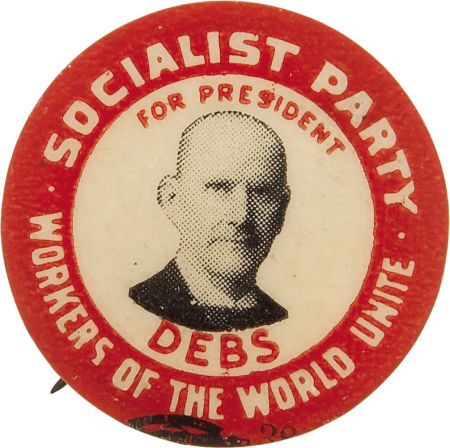
A charismatic and militant labor leader, five-time Socialist Party presidential candidate, class-war prisoner jailed by the ostensibly liberal Woodrow Wilson administration for opposing U.S entry into World War I and a fiery, moral force in a corrupted era — Eugene Victor Debs was among the greatest orators this nation ever produced, yet no recording of his voice survives. And what a speaker he was! John Swinton, the late 19th century New York labor writer who as a young man heard Lincoln speak, likened Debs to Lincoln not just in intellect but in character. And unlike Lincoln, Debs could speak cogently to crowds for hours without notes.
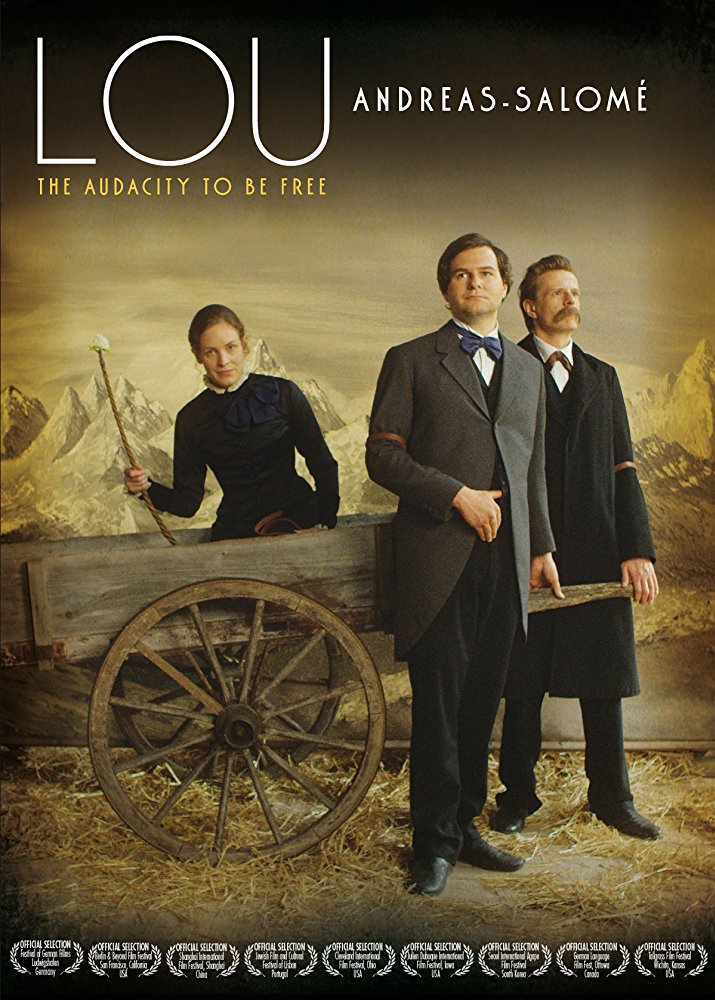
Lou Andreas-Salomé, The Audacity to Be Free
Directed by Cordula Kablitz-Post, 1 hr. 53 min
Cinema Libre Studios, 2016
This biopic is not subtle. From its opening scene featuring a pyre of books and a frenzied crowd cheering as a manic speaker justifies the burning of Marx, Trotsky, Freud and “everything that is not German” followed by a romp through Lou Andreas-Salomé’s prodigiously intellectual life and her last days as a target of the Nazis, the film is as much about the pain of choosing a vaporous freedom as it is the flailing pursuit of fulfillment by a self-assertive, iconic woman.
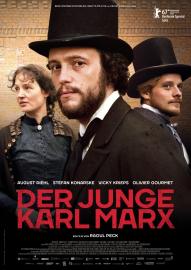
Raoul Peck’s The Young Karl Marx is the best buddy movie since George Roy Hill’s Butch Cassidy and the Sundance Kid in 1969. It’s also among the most important films in decades, bringing to a mass audience not just the revolutionary ideas of Marx and his friend and collaborator Frederick Engels in the early days of modern capitalism, but an approach to politics and history that still has no peer. Charting the world as he saw it, Marx wrote: “Accumulation of wealth at one pole is at the same time accumulation of misery, agony of toil, slavery, ignorance, brutality, mental degradation, at the opposite pole.” Has anything changed?
I first met Kim Moody some 50 years ago. He was then organizing chapters of the California-based Peace and Freedom Party as an alternative to the Democratic war machine. If memory serves, he came to Park Slope, Brooklyn, then a predominantly Irish and Italian working-class neighborhood—not the gentrified picture from House Beautiful it has since morphed into—but also inhabited by a smattering of déclassé radicals. Moody wanted to interest a few of us in taking up the electoral mantle.
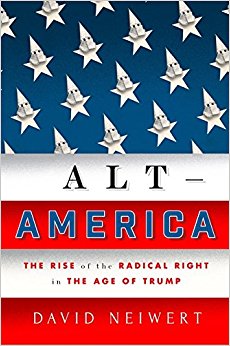
David Neiwart, Alt-Right: The Rise of the Radical Right in the Age of Trump. Verso Books, 2017.
Think of this book as a basket of deplorables. It’s thick on illuminating descriptions of renascent white nationalists, gun-enamored militia poseurs, conspiracy-theory mongers, Ku Klux Klansmen and women, Christian Identitarians and proto-Nazis benefitting from and legitimized by the sordid presidency of Donald Trump. It’s thin on explaining why such phenomena persist or have arisen as political thuggery in 21st-century America.
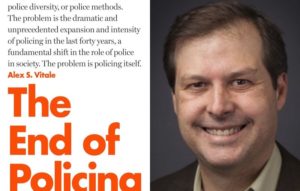
Do we need the police? Brooklyn College sociologist Alex S. Vitale poses that question vividly in his book: Are the police guarantors of social peace or its disruptors? Is the force’s mandate to serve the public equally and fairly, or to act as social-control agents, protecting property and its few owners at the expense of the many?
 Ten Days That Shook the World By John Reed(Introduction by Vladimir Ilyich Lenin and A. J. P. Taylor) Penguin Classics / Random House, 368 pages revised ed., 2007 (originally published 1919) Paperback: $13.44 (available from numerous retailers) ISBN: 978-1420-930-252
Ten Days That Shook the World By John Reed(Introduction by Vladimir Ilyich Lenin and A. J. P. Taylor) Penguin Classics / Random House, 368 pages revised ed., 2007 (originally published 1919) Paperback: $13.44 (available from numerous retailers) ISBN: 978-1420-930-252